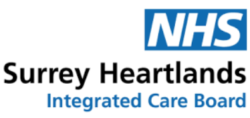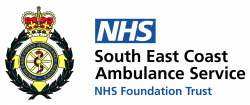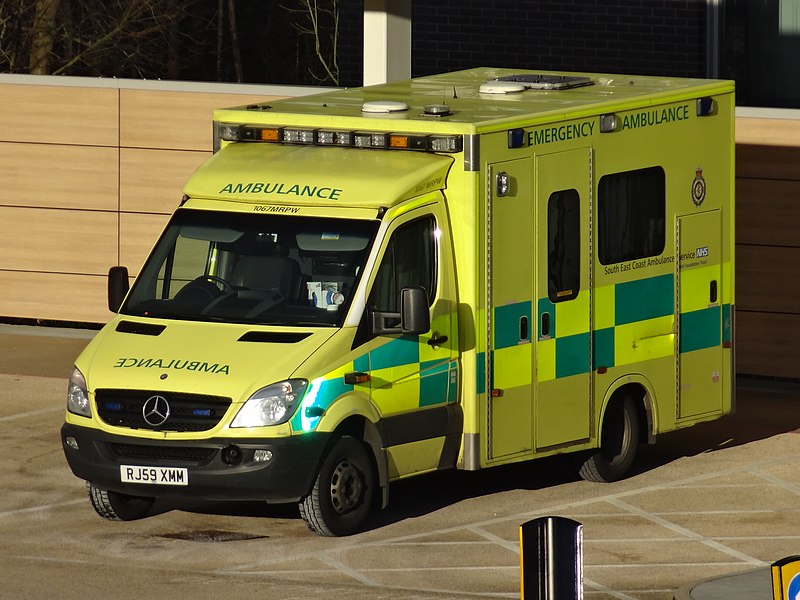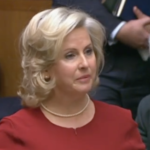By Martin Giles
A critical incident has been declared by NHS Surrey Heartlands today “due to the significant ongoing pressure on local NHS services”.
The declaration comes less than 48 hours after SECAmb declared a critical incident at 7pm on Monday. GMB union members at SECAmb are participating in industrial action today (6am to midnight) and for 24 hours on December 28.
See also: Royal Surrey Nurses Not Taking Part in Strike – Vote Below 50% Threshold
 The Surrey Heartlands “Care Partnership” (aka “ICS” Integrated Care System), which covers most of Guildford Borough, says it is seeing record numbers of people attending A&E, calling NHS111, accessing GP services and calling 999.
The Surrey Heartlands “Care Partnership” (aka “ICS” Integrated Care System), which covers most of Guildford Borough, says it is seeing record numbers of people attending A&E, calling NHS111, accessing GP services and calling 999.
Additionally, it is facing ongoing challenges discharging patients who are well enough to leave hospital and create capacity for new admissions. This is often because care packages for older patients, who need support but not hospital treatment, cannot be arranged. A further exacerbating factor is an increase in staff sickness.
See Guildford MP’s comment below.
The problems combined have led to “longer waits than we would like for patients to receive the care they need,” said a spokesperson.
In a statement, Surrey Heartlands said: “Because of these pressures, the local health and care system has taken the decision to escalate to a critical incident which allows us to be able to take additional steps to maintain safe services for our patients and help us cope with the growing pressures.
“Unfortunately, this does mean local organisations may need to reschedule some non-urgent operations, treatments and outpatient appointments to accommodate those patients with the most urgent clinical need. People should attend appointments unless they are contacted; cancer and our other most urgent operations continue to be prioritised.
“Our teams continue to work exceptionally hard; and we would like to reassure our patients and the public that despite the challenges faced and some changes to non-urgent appointments, essential services remain fully open for anyone who needs them so if you require urgent medical help, please continue to come forward.”
Surrey Heartlands is asking the public to help by ensuring they are seeking help from the most appropriate health services, and only attending A&E for serious accidents and emergencies.
Those who feel unwell, are asked to use NHS 111 online for 24/7 advice about the most appropriate care for their needs or call NHS 111, although phone lines remain very busy.
 SECAmb says it made its declaration “following a period of more than a week of sustained pressure across both our 999 and 111 services which has significantly impacted on our ability to respond to patients”.
SECAmb says it made its declaration “following a period of more than a week of sustained pressure across both our 999 and 111 services which has significantly impacted on our ability to respond to patients”.
“We urge the public to continue to call 999 in life-threatening emergencies as we prioritise our response to our most seriously ill and injured patients.”
“Declaring a Critical Incident provides us with additional oversight and enables us to explore options including mutual aid, while focusing all efforts on frontline patient care.”
Guildford”s MP Angela Richardson said: “The government has been working closely with the NHS to put in place contingency plans. The Health and Social Care Secretary has met with ambulance union representatives from Unison, Unite, GMB, and the Association of Ambulance Chief Executives to discuss which services should be exempt from strike action, including life-threatening emergency calls.
“NHS England and NHS trusts have been working with trade unions and professional bodies to agree the safe level of cover during industrial action at a local level. The NHS has tried and tested plans in place to mitigate risks to patient safety and manage disruption. Around 600 military personnel will be drafted in to drive ambulances on strike days, with an additional 150 personnel providing logistical support.
The NHS is also working with Community First Responders, who are volunteers trained to provide treatment until ambulances arrive. NHS England wrote to the healthcare system on 1 and 22 November stressing the need to plan to ensure minimal disruption to patient care and the requirement of emergency services to continue to operate.
“An additional letter was issued on December 16 outlining contingency plans to ensure minimal disruption to patient care and protect patients on ambulance strike days.
“This includes ensuring measures are in place to enable all ambulances to handover patients no later than 15 minutes after arrival; free up maximum bed capacity by safely discharging patients, in advance of industrial action; and take steps to allow immediate moving of patients who have completed their emergency medical care and are awaiting an inpatient bed out of the emergency department to create space for new patients. This may involve the creation of observation areas and additional beds elsewhere in the hospital.
“NHS trusts will also scale up winter resilience plans, including:
- Ensuring System Control Centres can make genuine real-time decisions which spread risk in order to improve patient safety.
- Establishing 8am-8pm falls response services to support people in the community and prevent avoidable admissions.
- Continuing to progress urgent community response services to ensure patients are seen in a timely way, with the right support.
- Maximising the use of existing virtual wards, and continuing to roll out new virtual ward capacity
- Creating and strengthening Acute Respiratory Infection hubs to improve ‘one stop’ same-day assessment of respiratory conditions.
“No one should have to wait longer than necessary to access urgent and emergency care, which is why the government is working with the NHS to take action to ease pressures across the system and prepare more extensively for winter than ever before.
“It is making up to £14.1 billion available for health and social care over the next two years on top of record funding and giving an extra £500 million to speed up hospital discharge and free up beds, ensuring people are only in hospital for as long as they need to be.
“The NHS is also creating the equivalent of 7,000 more beds this winter – enabling hospitals to treat patients sooner, including by using remote monitoring to provide care at home or in the community. The NHS will publish a recovery plan for emergency care next year.”
The Royal Surrey County Hospital has been asked to comment.
















Recent Comments